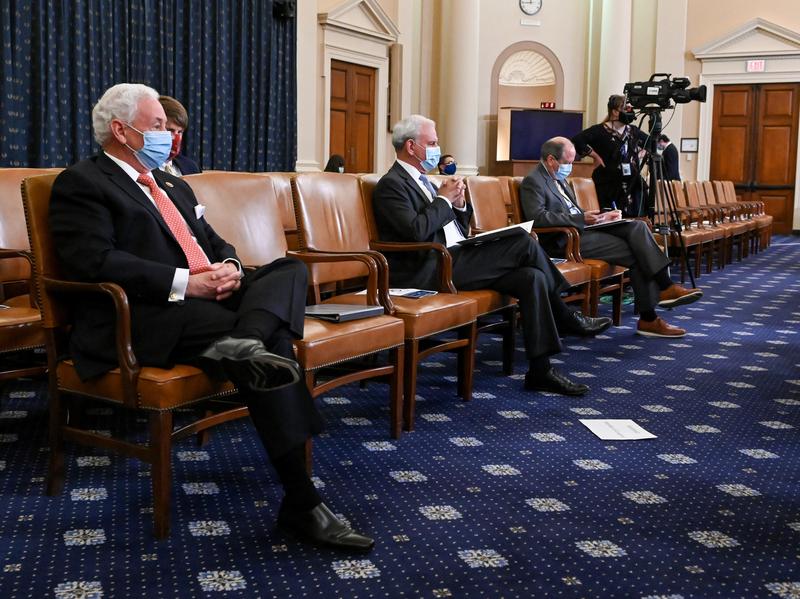With Historic Vote, House Will Allow Proxy Voting, Remote Hearings During Pandemic

For the first time in its history, the Democratic-led House approved rule changes that will allow members to vote by proxy and hold hearings remotely during the coronavirus pandemic.
For weeks, lawmakers debated the proposal as the pandemic worsened and forced the House to extend its recess as public health risks were assessed.
House Democrats installed the new rules on a largely party line vote of 217 to 189 over Republican arguments that the move bucks the chamber's institutional history and sets a dangerous precedent.
Now, a member can vote on behalf of 10 others who can't travel to Washington, D.C. Committees can also hold hearings and markups through video conference.
Currently, the House can only hold informal briefings remotely, but unlike the Senate, they can't hold a formal hearing with a member or witness attending remotely. Now, the Chief Administrative Officer will designate software panels can use to conduct the hearings, or in addition, markups or depositions.
"I don't suggest these changes lightly, I still believe that we do our best work in person and side by side," Rules Committee Chairman Jim McGovern, D-Mass., who has steered the effort, said on the House floor. "But we must temporarily embrace technology during this unprecedented time."
The House signed off on the plan on the same day it was considering a $3 trillion Democratic proposal for new coronavirus relief. Many members donned masks and voted under new social distancing requirements that stretched regular votes into to a several hours long affair.
This is the most significant change to the way the House votes since it installed its system to allow electronic voting on the House floor in 1973.
The chamber's regular business has largely came to a halt since mid-March, and has since only held a handful of votes related to coronavirus legislation. The chamber's meeting of the 430 members and support staff have proved particularly problematic as a result of previous outbreaks.
House Democrats were slated to vote on the new rules last month, but House Speaker Nancy Pelosi pulled the measure abruptly with hopes of gaining Republican support. However, a bipartisan task force failed to reach a final agreement after meeting over several weeks.
"We can continue to work in a safe and effective manner without overturning 230 years of constitutional and legislative tradition," House Republican Leader Kevin McCarthy said ahead of the vote. GOP leaders urged members of their conference to vote no.
Friday's measure also lays the groundwork for tech-based remote voting. It directs the House Administration Committee to conduct a study, certify the new electronic voting plan and test it out. It could be installed in a matter of months to a year or more.
Past attempts at remote voting have faced fierce opposition. Several years after 9/11, the House finally approved a lower threshold of floor quorums — a required number of present members — during national emergencies.
9(MDEwODYxNTQyMDEzNjAxODk2Nzc2NzNmYQ001))